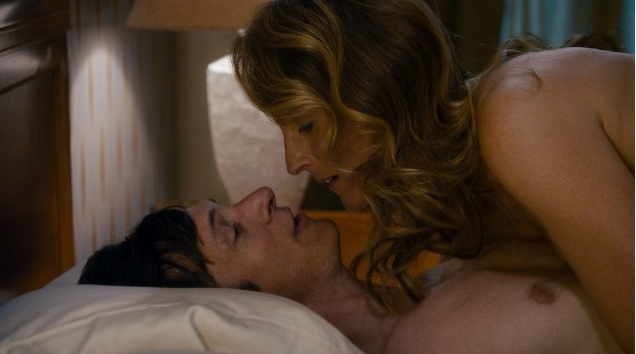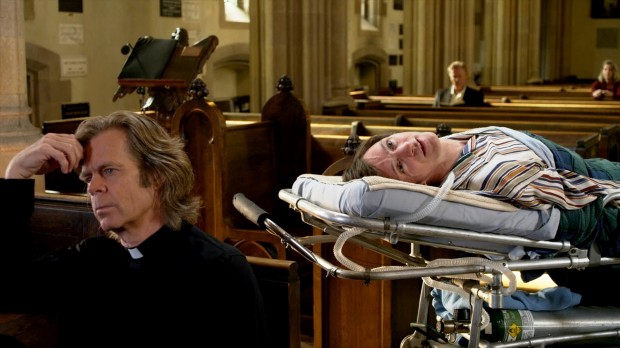Sundance staple John Hawkes has recently impressed with unnerving supporting roles in both Winter’s Bone and Martha Marcy May Marlene, but his latest appearance in the fest is a stirring, sympathetic lead role. The Surrogate captures the sexual awakening breakthrough of the polio-stricken Mark O’Brien (Hawkes) and writer/director Ben Lewin could have easily stepped into over-sentimental territory. Despite its TV aesthetics, Lewin excels in crafting a rich, moving story with fully fleshed-out characters, while striking an immaculate balance of comedy and drama.
Relying on an iron lung to breath, O’Brien can only venture out on a portable respirator for hours at a time. Establishing a relationship with his caretakers (one of his only forms of contact) becomes difficult beyond their work obligations. At the age of 38 he develops love for one of them (Annika Marks), but she can not reciprocate. Turning to religion more for the company than any kind of reverence, O’Brien links up with Father Brendan (William H. Macy), who isn’t afraid to step outside his boundaries for some guidance.
Although apprehensive and full of dismay, O’Brien desires to have his first sexual experience. With the blessing of the priest, he gets in contact with a sex surrogate Cheryl Greene (Helen Hunt). Clearing up the differences between her job and a prostitue right away, she explains her therapy only extends for six visits, as to not incur considerable emotional attachment.
Take this premise and one may think Lewin exploits O’Brien’s illness for an easy, cloying emotional response, or cue up the swelling music at the climax, or sugar-coat the sex and nudity for an all-audience affair. Thankfully, the 65-year-old writer/director, who hasn’t helmed a narrative feature in nearly twenty years, presents a tender, affecting portrait of a man who wants to love but is distanced by more factors than just his debilitation.
Hawkes masterfully anchors the drama, as the frail and charming bed-ridden man experiencing what most accomplish in their teens. With an altered voice and lack of all muscle movement from the neck down, he is tremendous at conveying his passions with glances and the slightest of facial gestures. Hunt bares it all, but never heads into gratuitous territory as Lewin presents sexual situations in a matter-of-fact fashion. The two wrestle with the emotional complexities that are coupled with sex, as their relationship becomes the strongest bond in the film, each with fully-realized arcs.
Structurally, Lewin smartly switches between these sex therapy sessions and O’Brien discussing them with Father Brendan, played by Macy with a wry dose of humor. The comedy could have felt cheap here, but by keeping the pacing tight, Brendan exudes perfect reactions to O’Brien’s progressively erotic confessions. In a smaller supporting role, Moon Bloodgood also steps outside her usual characters, playing a slightly nerdy caretaker with comedic chops.
Comparisons to The King’s Speech are already being thrown about (just replace the climax of a successful monologue with your first intercourse), but Lewin’s inclination to tell a story going beyond a safe, clean-cut area makes this journey more rewarding. Conveying new sensations one small step at a time as O’Brien hangs on with each painful breath, this peculiar story has enough compassion and wit to be a viable hit.



